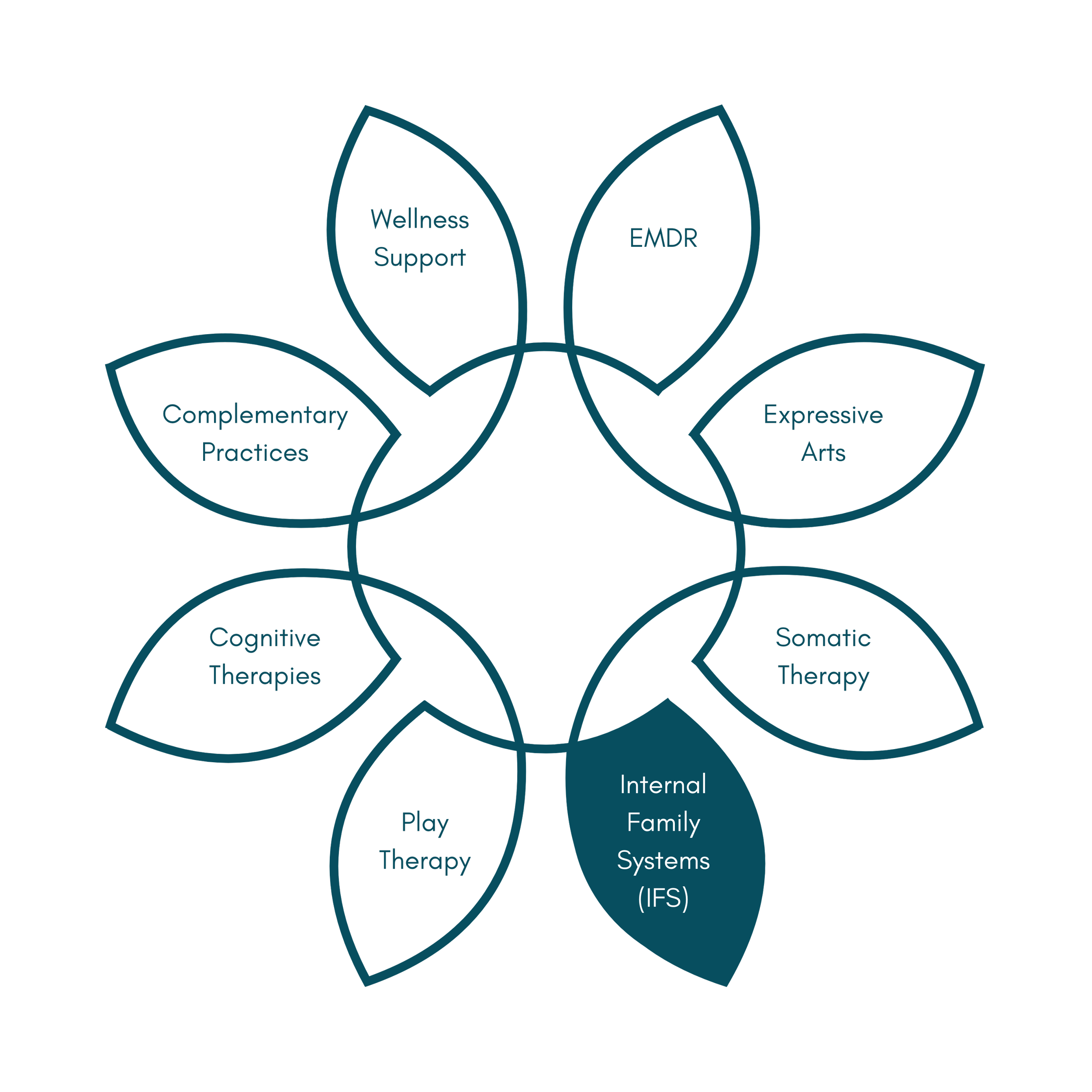
Internal Family Systems (IFS)
"To be human is to be imperfect, and when we can embrace our imperfections with compassion, we can heal."
— Kristin Neff, Self-Compassion: The Proven Power of Being Kind to Yourself
What does Internal Family Systems mean?
Internal Family Systems (IFS) is a type of therapy that acknowledges that people are made up of many different “parts” of self.
These parts can include aspects such as the inner critic, the caretaker, the task maker, the perfectionist, wounded child, or more, each with their own feelings thoughts and roles.
The goal of IFS is to create a more balanced internal system by understanding our various parts and fostering communication and cooperation between them.
By healing the wounds of the past and finding harmony with our inner parts, one is able to discover and nurture their core authentic “Self.”
How does IFS actually work?
Internal Family Systems (IFS) starts with connecting to your core Self—the most authentic version of you, or “who you really are” deep down.
The Self is guided by the 8 C’s: Confidence, Calmness, Creativity, Clarity, Curiosity, Courage, Compassion, and Connectedness.
And 5 P’s: Presence, Patience, Perspective, Persistence, and Playfulness.
By embracing these qualities and trusting your core Self, it can guide you with wisdom and confidence to restore balance and healing.
Next comes recognizing the various aspects of self, and building healthier relationships with those parts. This entails becoming aware of your different parts, acknowledging their purpose, and cultivating curiosity about what each part needs.
By listening intently to internal cues and messages, you can validate their needs, thereby offering compassion and connectedness to help them feel safe enough to release the pain and burdens they’ve been carrying.
As these parts heal, they can be accepted and reintegrated. Over time, letting go of pain and old patterns and becomes easier, allowing your true Self to guide the way and maintain balance.
Internal Family Systems therapy can help those experiencing:
Trauma and PTSD
Relationship Challenges
Depression & Chronic Guilt/Shame
Grief and Loss
Chronic Pain & Illness
Anxiety, Stress and Burnout
Anger Management
Self-sabotaging Behaviors
Self-Esteem & Identity Concerns
Dissassociative Disorders
Communication Difficulties
Struggles with Self-Awareness
Benefits of IFS therapy include:
Improved Emotional Resilience
IFS helps one understand their internal landscape, recognizing how the different parts of themselves influence thoughts and behaviors. By taking charge of their internal dialogue, this leads to more balanced decision-making and a greater sense of personal agency.
Secure Attachment Behaviors & Improved Relationships
By developing a compassionate relationship with one’s inner parts, this often makes way for enhanced feelings of empathy, understanding, and connection in relationships with others.
Processing and Healing from Trauma
Through a kind, compassionate exploration to understanding wounded parts, one can nurture a supportive sense of safety to mindfully resolve and release the emotional pain of previous trauma.
Stronger Sense of Identity & Self-Value
IFS fosters deeper self-awareness and inner strength through Self-leadership. By recognizing, understanding, and unburdening different parts of yourself, the core Self can take the lead to create and maintain balance. This internal stability makes it easier to navigate life’s challenges with flexibility and confidence.
Explore All Treatment Approaches








